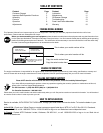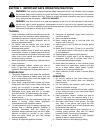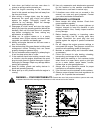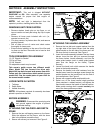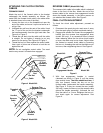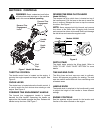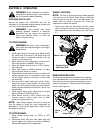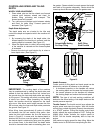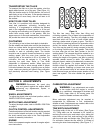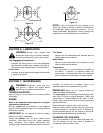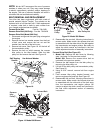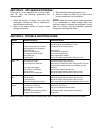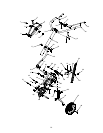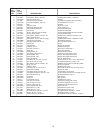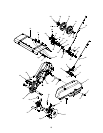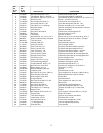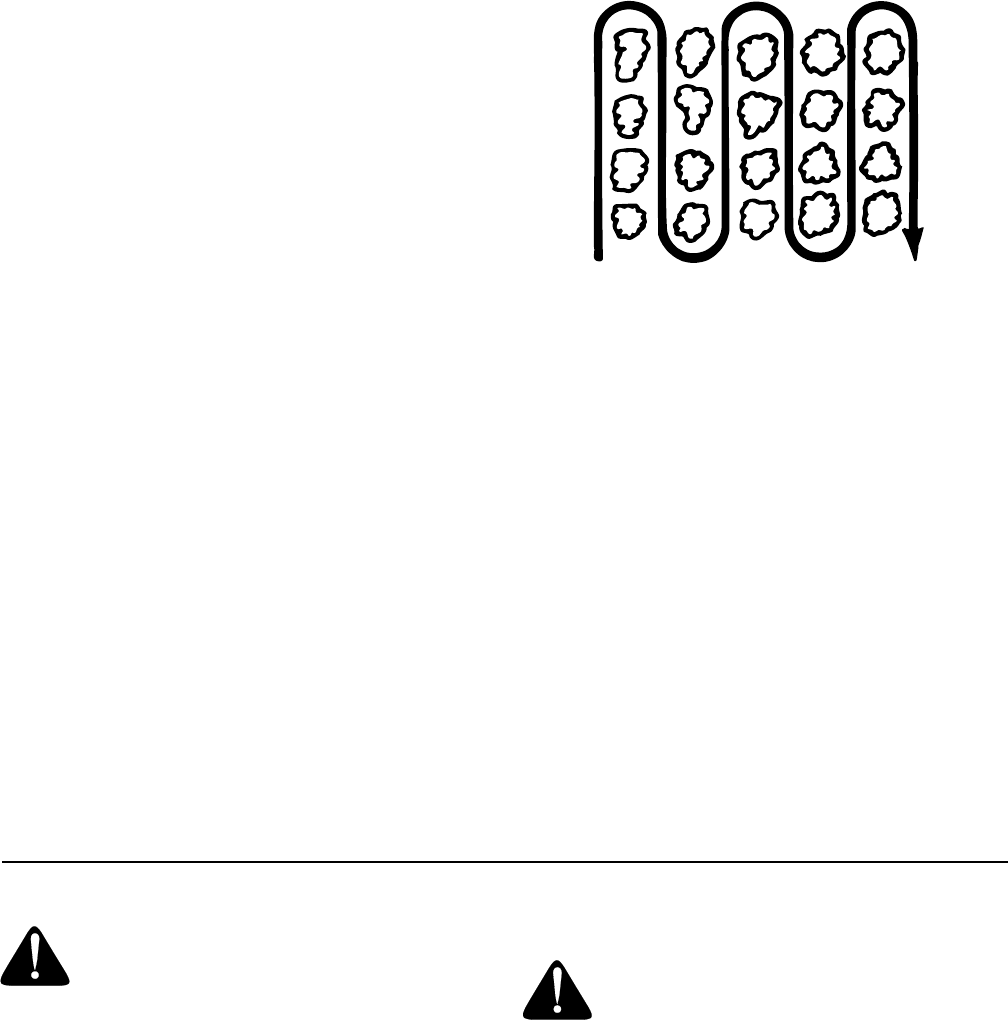
10
TRANSPORTING THE TILLER
To transport the tiller to or from the garden, pivot the
depth stake forward, out of the way. (See Figure 12.)
With the throttle control in SLOW position, the unit will
walk freely on top of the lawn. If the operator does not
allow the tiller to move freely, the unit will start to till
the surface.
HOW TO USE YOUR TILLER
Your tiller is a precision built machine designed for
seed bed preparation, cultivating, furrowing and
mulching. It is engineered to minimize the hardest
work in the vegetable or flower garden, to till the soil
for planting and cultivating, and to perform many other
useful labor saving tasks in the garden. With the
proper amount of care and maintenance, this machine
will provide the owner with many years of service.
CULTIVATING
For cultivating, a two to three inch depth is desirable.
Set the wheels and depth stake so that the wheels are
about two inches above the ground while the tiller is
resting on the tines and depth stake will allow the
machine to work at cultivating depth. The throttle
should be set to control forward movement to a slow
walking speed. With the outer tines installed, the
working width of the machine is 22 or 24 inches. For
cultivation, this may be reduced to 13 inches by
removing the outer tines. Refer to Tine Width
Adjustment in Adjustment section. When laying out
plant rows, be sure to allow enough width to permit
cultivation between the rows. In growing corn or similar
crops, check-row planting will permit cross cultivation
and practically eliminate hand hoeing. (See .Figure
14).
Figure 14
The tiller has many uses other than tilling and
cultivating a garden. One of these is the preparation of
lawn area for seeding. The tiller will prepare a deep
seed bed which will be free of hard untilled spots,
allowing a better stand of grass to grow. The tiller is
very useful for loosening hard soil for excavation with a
shovel. No tedious hand pickwork will be necessary.
Your tiller may be used for mixing compost in the pile,
or for mixing it with the soil in your garden. This should
be done after the soil has been broken to the full
working depth. The compost should be worked in to a
depth of six to seven inches. This may be done by
working the length of the garden, and then by making
separate passes across its width. The addition of
decayed organic matter will substantially increase the
fertility of your garden. For proper decaying action,
fertilizer should be applied and worked in with the
mulch materials. Breaking up leaves and straw and
mixing it with several inches of soil causes the soil to
hold moisture longer and allows proper aeration of the
plant root system. This also retards the growth of
weeds.
SECTION 5: ADJUSTMENTS
WARNING: Disconnect the spark plug
wire and ground against the engine before
performing any adjustments, repairs, or
maintenance.
WHEEL ADJUSTMENTS
To adjust the wheel yoke and wheel position, refer to
WHEEL POSITION on page 8.
DEPTH STAKE ADJUSTMENT
To adjust the depth stake, refer to WHEEL POSITION
on page 8.
CLUTCH CONTROL ADJUSTMENTS
Periodic adjustment of the belt tension may be required
due to normal stretch and wear on the belt. To adjust
the clutch control lever, refer to the Final Adjustment
section of assembly instructions.
ENGINE
Refer to the separate engine manual for engine adjust-
ment instructions.
CARBURETOR ADJUSTMENT
WARNING: If any adjustments are made
to the engine while the engine is running
(e.g. carburetor), disengage all clutches and
tines. Keep clear of all moving parts. Be
careful of heated surfaces and muffler.
Minor carburetor adjustment may be required to
compensate for differences in fuel, temperature,
altitude or load. If adjustments are needed, refer to the
engine manual packed with the tiller.
TINE WIDTH ADJUSTMENT
The tilling width of the unit is 22 inches. (See Figure
15.) Tilling width can be increased to 24 inches by
removing the clevis pins and hairpin clips, sliding the
outer tines out one inch, and securing in this position
with the clevis pins and hairpin clips. (See Figure 16.)
For cultivation, reduce the tine width to 13 inches by
removing the outer tines completely. (See Figure 17.)



